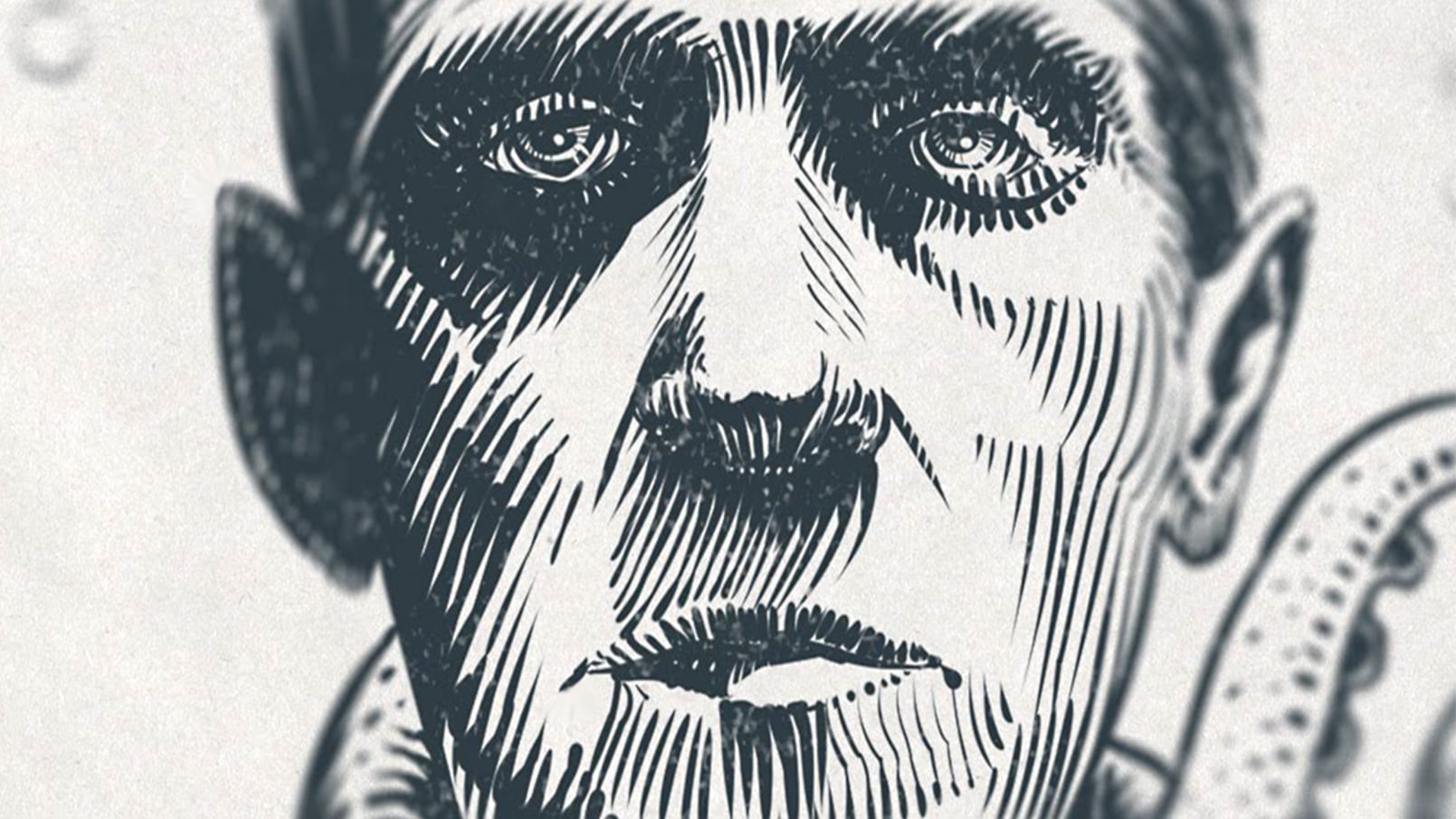Hey and welcome back to Lady Things.
You may have heard that Portland's famous goth bar, The Lovecraft, is under new ownership after the previous owner, Jon Horrid was accused of assault. Now that the bar has changed hands, questions arose whether the new owner planned on continuing to call the bar after an author known for racism and anti-semitism, as well as his stories about unspeakable monsters.
In response, the staff issued a statement defending the name. From Willamette Week's article:
"HP Lovecraft died in 1937," the staff said in the statement. "In his youth at the turn of the century, within the context and confines of history he had some racist sentiments and ideas. We do not judge the entirety of someone's body of work throughout their life on one unfavorable period of time."
This is a pretty common response when it comes to questions about the legacy, works and opinions of long-deceased icons. Since you know I love any opportunity to drag dead authors who can't defend themselves, this week let's take a look at the idea that Lovecraft's racism was confined to only a brief period in his career, and since it happened long ago, somehow wasn't as bad or doesn't have consequences today.
There is actually a sizable body of work in articles and on social media critiquing Lovecraft's racism, and one of the first articles I came across was one entitled "Disturbed by Lovecraft, whose racism and hate weren't merely a product of his times," by Jason Sanford, which addressed exactly this issue.
" Lovecraft's racism and anti-Semitism went far beyond the norm even of those horrific times. And as times changed, Lovecraft didn't change with them, instead sticking firmly to his racism and anti-Semitism," Sanford writes.
One of the major problems with The Product of the Time argument is that it hinges on the belief that the person didn't know better, that they lived in a time of naïveté. They didn't understand that calling someone a name that's always been used as a form of oppression was harmful, and that they couldn't see how their beliefs directly related to people's suffering.
This argument is almost always bullshit because, while there's always been bad people, there's also always been people who knew better and who pushed back against these ideas. Sanford's article explains how Lovecraft's racism was so well-known, one of his friends was forced to address it. One of his contemporaries, Charles D. Isaacson, even talked about his racism in an essay from 1915. In a call-out that I'm sure would instantly get Isaacson dismissed and labeled as an emotional snowflake SJW, he wrote that Lovecraft "is against tolerance of color, creed and equality, upholds race prejudice…".
Now, for those who are unfamiliar with Lovecraft's work, you might be thinking that the racism in it is probably not that bad. Well, it is, and here's just a few examples among many. In the midst of this criticism, in case you're wondering if I've ever read a stitch of Lovecraft, just know that I went through a short-lived period of time where I was really into his work, a phase which ended abruptly after getting to "The Rats in the Wall" (1923).
In this story the main character has a cat called "N****r-Man." (But without the asterisks.) And it's not like the cat is mentioned in passing, it's almost as if Lovecraft made a deliberate effort to include the cat's name as much as possible, rendering the story unreadable. After "The Rats in the Wall," enjoying Lovecraft's work became extremely difficult, as the taint of his beliefs became apparent in other stories, like "The Picture in the House" (1920), where a creepy old man learned to eat humans from a book about Africans.
Oh, and there's also the poem. You may have heard of it. It's called "On the Creation of N*****s" (1912). (I'm still not typing that word.) From the poem:
"A beast they wrought, in semi-human figure,
Filled it with vice, and called the thing a N****r."
After that, frankly I had no problem snipping the string on the Lovecraft balloon and letting it float off into nothingness.
Even though most internet commentators would say otherwise, writing is very hard work, and telling a story requires a lot of deliberation. When I think of the time and thought it would take to sit down and craft a story with a cat named after a racial slur for black people, or an entire poem about how black people were only part human and filled with evil, it makes me think that someone who would do that isn't just going through an unfortunate, momentary lapse in their belief systems.
I could see perhaps forgiving these transgressions had he then written a poem called "On Being A Racist Piece Of Shit And What I'm Going To Do To Rectify That," but Lovecraft never actually recanted those beliefs, and that's a big problem. Looking at Lovecraft's career and accounts from his wife, it's clear his racist beliefs weren't confined to one period of time and then followed by decades of deep repentance.
In fact, he was so unrepentant in his racist hatred that his wife, who was Jewish, described how his body would tremble with rage while walking amongst the diverse crowds of New York City. By the way, he justified his relationship to a Jewish woman by explaining that by marrying him, she no longer belonged to those "mongrel" people, which only proves that hypocrisy and inconsistency are two common features of racism. She finally left him in 1926, thanks in part to his relentless anti-Semitism, eleven years before his death.
It's because of all this that people like myself are OK with letting go of Lovecraft in light of this legacy, because those vile beliefs are still around today, and unless they're condemned, they'll continued to be accepted and dismissed as not harmful, which only helps them proliferate. For me, it's not possible to separate Lovecraft from his work because his vile worldview is apparent in so much of his writings.
And that's one of the more painful things that lies at the Product of the Time argument, is that because it happened so long ago, that people's suffering shouldn't matter. That generational trauma doesn't exist and that periods of resurgence in racism don't have lasting effects or consequences. What this argument is essentially saying is that these kinds of issues don't and shouldn't bother anyone.
The thing is, all of us have had beliefs that are offensive and hurtful, but what's important is what we do to fix them once we figure it out. You can always change your mind and work towards doing better, it's never too late.
Unless you're HP Lovecraft.

